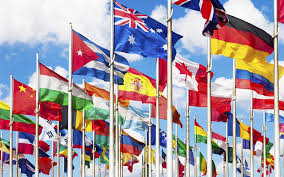Happy 80th Birthday Bob! The Enduring Message of Bob Marley's "War": A Call to Action Against Oppression
- Main Street Rose Hall
- Feb 6
- 3 min read
Updated: Feb 11
In 1976, Bob Marley, the legendary Jamaican reggae artist, released the song "War" on his album "Rastaman Vibration". The song's powerful lyrics, inspired by a speech delivered by Haile Selassie I, the former Emperor of Ethiopia, continue to resonate with people around the world, serving as a rallying cry against oppression, inequality, and injustice.

The Lyrics: A Call to Action
The song's lyrics are a poignant expression of the struggles faced by marginalized communities, and the need for collective action to bring about change.
Marley sings:
"Until the philosophy which holds one race superior
And another inferior
Is finally and permanently discredited and abandoned
Everywhere is war
Me say war
That until there are no longer first class and second class citizens of any nation
Until the color of a man's skin
Is of no more significance than the color of his eyes
Me say war
That until the basic human rights are equally guaranteed to all
Without regard to race
Dis a war
That until there are no longer first class and second class citizens of any nation
Until the color of a man's skin
Is of no more significance than the color of his eyes
Me say war"

The Meaning: A Message of Unity and Resistance
The lyrics of "War" are a powerful indictment of systemic racism, oppression, and inequality. Marley's message is clear: as long as these injustices persist, there will be war. The song is a call to action, urging people to come together to fight against oppression and demand equal rights and justice for all.
The song's message is rooted in the principles of Rastafarianism, which emphasizes the importance of African identity, self-empowerment, and resistance against oppression. Marley's music was heavily influenced by his Rastafarian faith, and "War" is a testament to the enduring power of this message.

The Impact: A Global Call to Action
"War" has had a profound impact on the world, inspiring generations of activists, artists, and musicians to take up the fight against oppression and inequality. The song has been covered by numerous artists, including Bruce Springsteen and the E Street Band, and has been featured in various films, documentaries, and television shows.
The song's message has resonated with people from diverse backgrounds and cultures, from the anti-apartheid movement in South Africa to the civil rights movement in the United States. "War" has become an anthem for social justice, a powerful reminder of the need for collective action to bring about change.
Relevance in Today's World
Despite being written over 40 years ago, the message of "War" remains eerily relevant in today's world. The song's themes of systemic racism, oppression, and inequality continue to plague societies around the globe.
From the Black Lives Matter movement in the United States to the ongoing struggles of indigenous communities and refugees worldwide, the need for collective action to demand justice and equality has never been more urgent.
In recent years, "War" has been invoked by activists and artists as a rallying cry against police brutality, xenophobia, and Islamophobia. The song's message has also been used to raise awareness about climate change, economic inequality, and other pressing social and environmental issues.
"War" is more than just a song – it's a powerful call to action that continues to inspire people around the world to demand justice, equality, and human rights. As we navigate the complexities of the 21st century, the message of "War" remains a timely reminder of the need for collective action to bring about positive change.
As Bob Marley so eloquently sang, "Until the philosophy which holds one race superior and another inferior is finally and permanently discredited and abandoned, everywhere is war." May the enduring message of "War" continue to inspire us to work towards a world where all people are treated with dignity, respect, and equality.
Celebrate Bob's birthday - February 6, 1945. Play a few of his songs and "give thanks" to have him in our world today.
Visit Main Street Rose Hall, Montego Bay when next in Jamaica and buy Jamaican made art & products at several of their stores and at the Artisan Craft Market. You can also enjoy our murals, installations, tax-free & souvenir stores, rums & spirits, Jamaican Blue Mountain Coffee, art gallery, resort wear, Jamaican F&B options and much more while relaxing and listening to authentic Jamaican music.
Follow us on Instagram @MainStreetRoseHall and on Tik Tok @main.street.rose.hall
Take pictures, post & tag us! #MainStreetRoseHall #ExperienceTheBestOfJamaica Main Street Rose Hall support Jamaican Made products. #BuyJamaicanEmployJamaicans
Sources:
Marley, B. (1976). War. On Rastaman Vibration [LP]. Island Records.
Selassie I, H. (1963). Speech to the United Nations. October 6, 1963.
Steffens, R. (2005). So Much Things to Say: The Oral History of Bob Marley. W.W. Norton & Company.
Walker, K. (2017). Bob Marley: The Music, the Myth, the Message. ECW Press.

.png)









